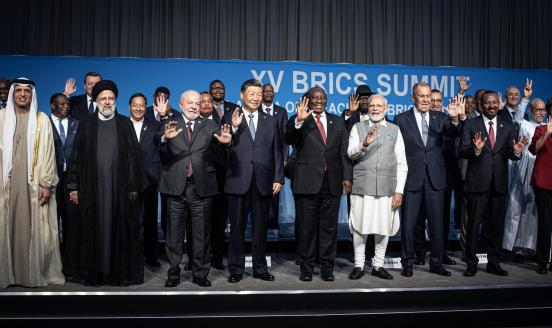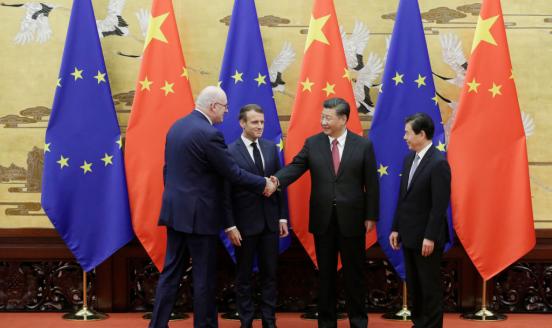Policy brief
Deglobalisation in the context of United States-China decoupling
After decades of increasing globalisation, there now seems to be a slowing, or even a turn to deglobalisation, meaning decelerating trade and investme

- After decades of increasing globalisation on every front, from trade – pushed further by the growing role of value chains – to technology, movement of people and investment, there now seems to be a turn towards slower globalisation if not deglobalisation, at least in some areas.
- Deglobalisation is not a new concept but rather a megatrend which has been seen before, for example right before the First World War. Signs of deglobalisation, measured by decelerating trade and investment, and smaller global value chains, started to appear already in 2008. But this trend seems to have accelerated because of the United States’ push to contain China in the context of the strategic competition between the two. Such containment is apparent not only in bilateral trade and investment flows but also in technology. COVID-19 has been a second very important factor contributing to deglobalisation. The most obvious impact has been in movement of people.
- However, the trend towards deglobalisation is much less evident for finance, with the exception of foreign direct investment, though increasing attempts by the US and China to decouple particular types of financial flows are emerging, including the delisting of Chinese companies from US stock exchanges and the imposition of sanctions for transactions with certain Chinese companies and individuals. Overall, it is too early to confirm the depth and the sustainability of the current wave of deglobalisation, but an increasing number of signals suggest a trend of deglobalisation is underway.
García-Herrero, A. and J. Tan (2020) ‘Deglobalisation in the context of United States-China decoupling’, Policy Contribution 2020/21, Bruegel



